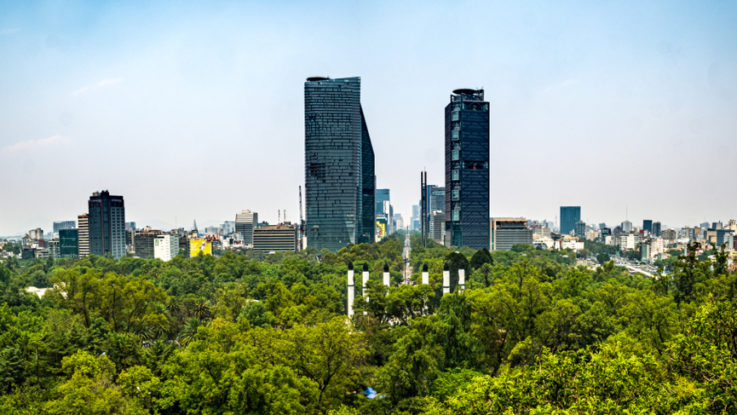
Mexico City has created a pilot project featuring a cycle path in a section of its Chapultepec Forest (Bosque de Chapultepec) that is constructed of a prefabricated, climate-adaptive road material made from plastic waste. The Chapultepec Forest area runs through the city and is considered the heart of the city’s progression to green mobility.
The greater metropolitan area of Mexico City is facing potable water challenges, due to a growing population, recent heavy rains, pollution due to the generation of plastic waste, and an ageing infrastructure. The durabile and low-maintenance modular design of the cycle path allows for temporary water storage and drainage features. Water can be stored during extreme rainfall and flooding conditions with sensor technology being used for monitoring and surface management. During dry periods, rainwater is gradually infiltrated back into the ground, reducing negative impact on the area. The PlasticRoad path has a reduced carbon footprint of up to 72% over its service life as compared to traditional road structures. It is composed of over 2,200 pounds ( ~ 997 kilos) of plastic waste – the equivalent of half a million plastic bottle caps.
“An initiative like this combines the idea of seeking sustainable mobility in the city with the idea of giving new life to plastic waste as reusable material to build new infrastructure,” said Dr Marina Robles García, secretary of Sedema. “We believe that together, we can build a better city. A city with a future, with a sustainable future.”
Material developer PlasticRoad, the Orbia community of companies, Mexico City Mobility Secretariat (Semovi) and the Mexico City Environment Secretariat (Sedema) collaborated on the project.